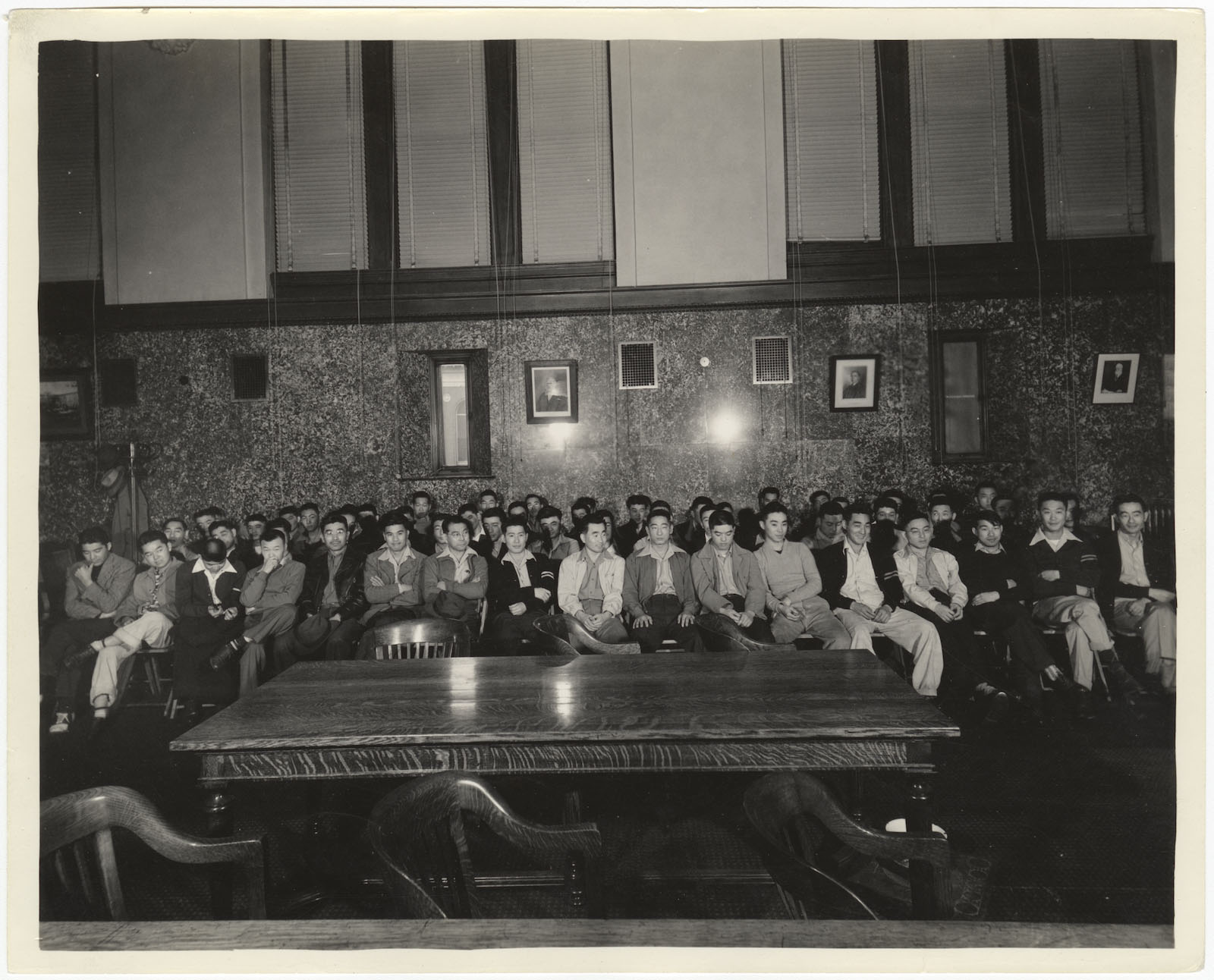The members of the FPC at Heart Mountain were committed to the principles of democracy and justice. As American citizens, they had the right to question the constitutionality of Executive Order 9066 and the logic of a military draft under these conditions of suspended civil rights. In March of 1944, the members of the FPC were arrested and jailed for draft evasion because they did not show up for their required physical examinations. In June of 1944, these 63 men went to trial in Cheyenne, Wyoming. It was the largest mass trial in Wyoming history. Convicted of willfully defying an order to report for military service, the men were sentenced to three years of jail time.
In March of 1944, the 63 members of the FPC were arrested and jailed for draft evasion because they did not show up for their required physical examinations. That June, they went to trial in Cheyenne, Wyoming. It was the largest mass trial in Wyoming history. Convicted of willfully defying an order to report for military service, the men were sentenced to three years of jail time.
President Harry Truman pardoned the draft resisters’ felony convictions three years later in December of 1947. However, a huge rift between the draft resisters and many in the Japanese American community, including Japanese American military veterans and Japanese American organizations, remained. Not until the 1990s did Japanese American veterans organizations* and the Japanese American Citizens League (JACL) publicly forgive the draft resisters.
- What does this say about being good American citizens and patriots?

